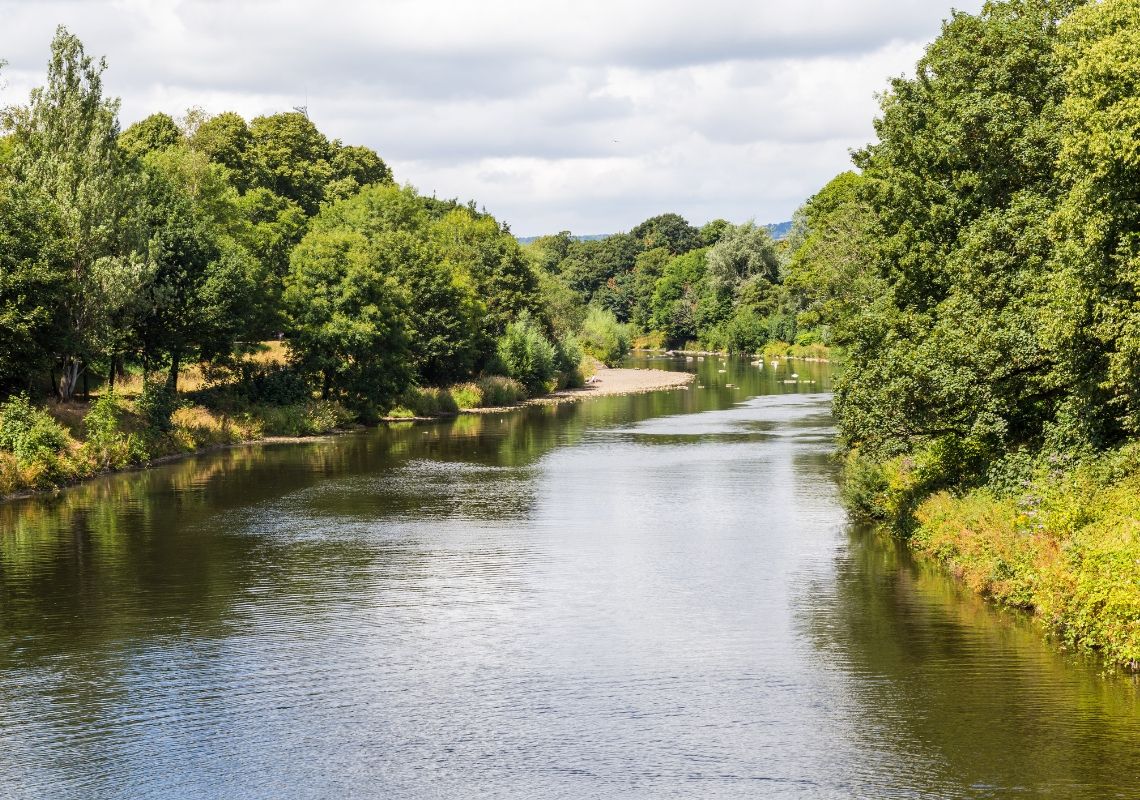Enhancing Understanding of Water Resources in the North West
Throughout 2022-23, and again in 2023-24, Groundwork have been working with the Environment Agency and number of partners on Dispelling the Myth; a project designed to ignite conversations about water resources in the North West.

Water is our most precious resource, sustaining all life and livelihoods, but its not infinite. If all the world’s freshwater was contained in a jug, the amount available which we can use could be represented as a single drop.
And despite the North West being a region with a reputation for plentiful rainfall, prolonged dry weather and drought can still cause problems for people and the environment. Pressure on our water resources and water environment is increasing too due to the impacts of climate change and population and economic growth.
To prevent a water resource crisis, we must carefully manage our individual and collective use of water, looking after every drop.
The initial target audience for the Dispelling the Myth project was the North West catchment partnership host organisations. These organisations have adopted a Catchment Based Approach which embeds collaborative working at a river catchment scale, protecting the precious water environment for the benefit of us all.
As such, they are the primary audience to understand and disseminate the myth, engaging their members and supporters with the fact and increasing the prevalence of water resources in meeting discussions.
Through the Dispelling the Myth project, Groundwork created a collection of useful tools for the catchment partnership organisations in the region, however these can be used by catchment partnerships across the UK, or by anyone who wants to explore this subject further and create a plan of action.
1. Short Film: The project’s informative video is a powerful engagement tool which highlights the challenges in the region and emphasises the importance of water management.
2. Template pack – Catchment-Based Water Resources Evidence Summary: This summary brings together water resources evidence and information in a cohesive narrative in order to support informed decision making and stakeholder engagement.
3. Library of Resources: The project’s resource library contains links to useful websites, documents, and more, providing catchment partnerships with a wealth of knowledge about water as a vital resource.
4. Water Resources Training: The project developed training materials and delivered these to catchment partners with comprehensive resources such as ‘Water Resources 101’ – which covers topics including water management, laws, pressures, and stakeholder roles.
5. North West Catchment Partnership Funded Projects: In the second year of the programme funding opportunities were made available so North West catchment partners could delve into water resources within their specific areas of interest.
The project supported 8 small-scale projects across 9 catchments. These initiatives addressed diverse aspects of water resource management, from data collection and analysis to stakeholder engagement and capacity building:
- Lune Catchment: Gathered data to inform water-saving measures. Identified challenges and raised awareness with catchment partners.
- Irwell & Upper Mersey Catchment: Engaged golf courses, enhancing water management understanding. Shared resources for sustainable water practices.
- Wyre Catchment: Collaborated with farmers in Wyre catchment to raise water resource awareness through surveys and outreach.
- South Cumbria Catchment: Raised water awareness in Kent and Levens catchments through workshops, meetings, and community sessions.
- Douglas Catchment: Educated school children on water management and scarcity through presentations, activities, and field trips.
- Ribble Catchment: Hosted workshops, site visits, and discussions to raise awareness of water resources in the Ribble catchment.
- West Cumbria: Integrated water resource considerations into catchment plans, enhancing understanding and guiding future actions.
- Weaver Gowy: Raised awareness of water resources among abstractors in partnership with Water Resources West, securing commitments for sustainable water management in the catchment.
6. Communication Assets: Responding to stakeholder feedback we created 21 tailored and engaging water resource assets, including infographics and social media posts. These assets assist partners to effectively communicate key messages across their communications channels.
We are proud to support the Dispelling the Myth project in Greater Manchester to help to raise awareness of sustainable water management and encourage collective action for the future.
Water is precious, and we should use it wisely. The Environment Agency works closely with water companies, farmers and wider stakeholders to carefully monitor water resources during periods of dry weather to ensure the needs of both water users and the environment are met.
We all have a part to play to reduce water use and simple actions such as turning off taps when not needed, or using a water butt in gardens leaves more water to support the environment. The impacts of climate change and population growth means we all need to focus on reducing demand, using less water and being more efficient.
Ian Crewe, Area Director for Greater Manchester Merseyside and Cheshire at the Environment Agency
Groundwork invites everyone to come together to protect our most precious resource – water – today and for generations to come.
